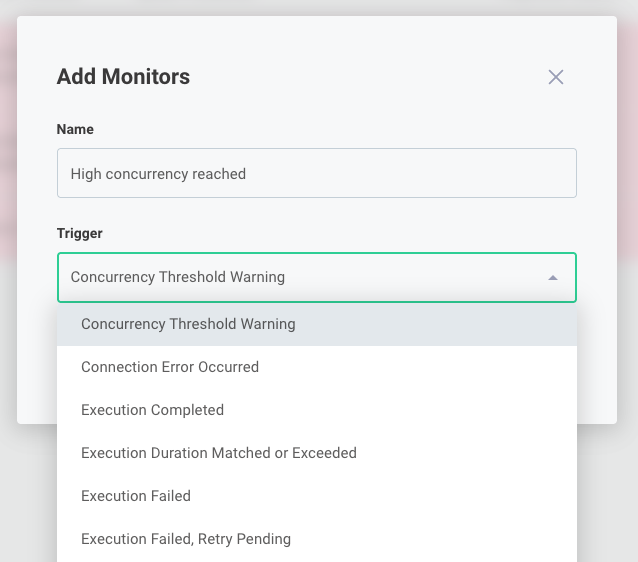Integration Limits
Integration instances execute in isolated, containerized Node.js environments with specific resource allocations and execution constraints. Understanding these limits helps you design integrations that perform reliably within the platform's boundaries.
The Prismatic runner environment
Instances of integrations (and test runs of integrations) execute in isolated NodeJS containers with distinct filesystems and memory. Two instances of the same integration run in distinct isolated environments. Integrations currently run using NodeJS version 18.x.
Runner limitations
Memory allocation
The Prismatic integration runner is allocated 1GB of RAM for execution. If you find that your instances are running out of memory, please review Memory Management for strategies on how to stay within memory limits.
Execution time limitations
An instance will run for up to 15 minutes. If you have large datasets to process, you can break data into smaller chunks and process chunks in parallel or in several subsequent executions with recursive flows.
Webhook limitations
Webhook request size limitations
Webhook payload size is limited to 6MB. 6MB is generally large enough to handle most JSON, XML, or other webhook payloads.
If the payload you need to process exceeds 6MB (i.e. you are processing large images, PDFs, etc.), we recommend saving the large file to a file storage system first (Dropbox, Amazon S3, Azure Files, etc.) and sending metadata about the file in your webhook request. Your integration can use the metadata to fetch the file for processing.
Synchronous webhook response size limitations
When a webhook is invoked synchronously, the response contains the results of the last step of the flow (so if the last step returned a PDF file, the webhook response would be a PDF file). Prismatic writes the response to a file in Amazon S3 and responds with an HTTP 303 (Redirect) to the object in S3.
Step results have a maximum size of 500MB. If the results that you generate exceed 500MB, consider writing the file to a file storage system (Dropbox, your own Amazon S3 bucket, etc.) and returning metadata about the file instead.
Read More: Synchronous Invocations and Redirects
Synchronous invocation timeouts
A webhook request will time out after 30 seconds. Webhook requests to synchronous triggers (triggers that wait until the execution finishes running before responding) must complete their work in under 30 seconds.
Webhook rate limiting and concurrent executions
The number of concurrent executions your organization can run is determined by your pricing plan. If your organization is already running that many executions and an additional request is received, the requester will receive a 429 "too many requests" response.
When an execution starts, the first log line includes the number of executions that are currently running.

Alerting on concurrency limits
You can alert your team when you approach your concurrent execution limit by creating a concurrency threshold alert monitor. To do that, open Monitors from the left sidebar and then select + Add alert monitor. Give your monitor a name and select Concurrency Threshold Warning as the Trigger.

Within your trigger, select recipients to receive alerts (via email or webhook request). You will be alerted if the number of concurrent executions you're running exceeds 80% of your maximum limit (for example, if your contract allows for 500 concurrent executions, you will receive an alert if you run over 400 executions at one time).